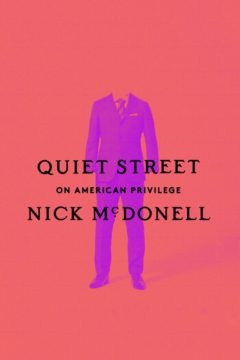Jesse Barron in Book Forum:
 IN HIS 1980 ESSAY ON THE AMERICAN SCENE, “Within the Context of No Context,” George W. S. Trow supplies an anecdote from Harvard in the early 1960s. During an art history class on the Dutch masters, a Black student described Rembrandt as “‘belonging’ to the white students in the room.” The white students totally agreed with this. “They acknowledged that they were at one with Rembrandt,” Trow writes. “They acknowledged their dominance. They offered to discuss, at any length, their inherited power to oppress.”
IN HIS 1980 ESSAY ON THE AMERICAN SCENE, “Within the Context of No Context,” George W. S. Trow supplies an anecdote from Harvard in the early 1960s. During an art history class on the Dutch masters, a Black student described Rembrandt as “‘belonging’ to the white students in the room.” The white students totally agreed with this. “They acknowledged that they were at one with Rembrandt,” Trow writes. “They acknowledged their dominance. They offered to discuss, at any length, their inherited power to oppress.”
At the time, the prevailing wisdom was that these students were expressing “white guilt.” A generation later, Trow thinks the prevailing wisdom was wrong. “No,” he writes, “it was white euphoria. Many, many white children of that day felt the power of their inheritance for the first time in the act of rejecting it.” One way to look at Trow’s revision is as a cynical teardown of ’60s idealism: it looked sincere in the moment but was actually just privileged self-indulgence. But guilt and euphoria are fully compatible moods, not mutually exclusive ones. You can usually detect both of them whenever the children of privilege try to describe their own experience.
More here.
